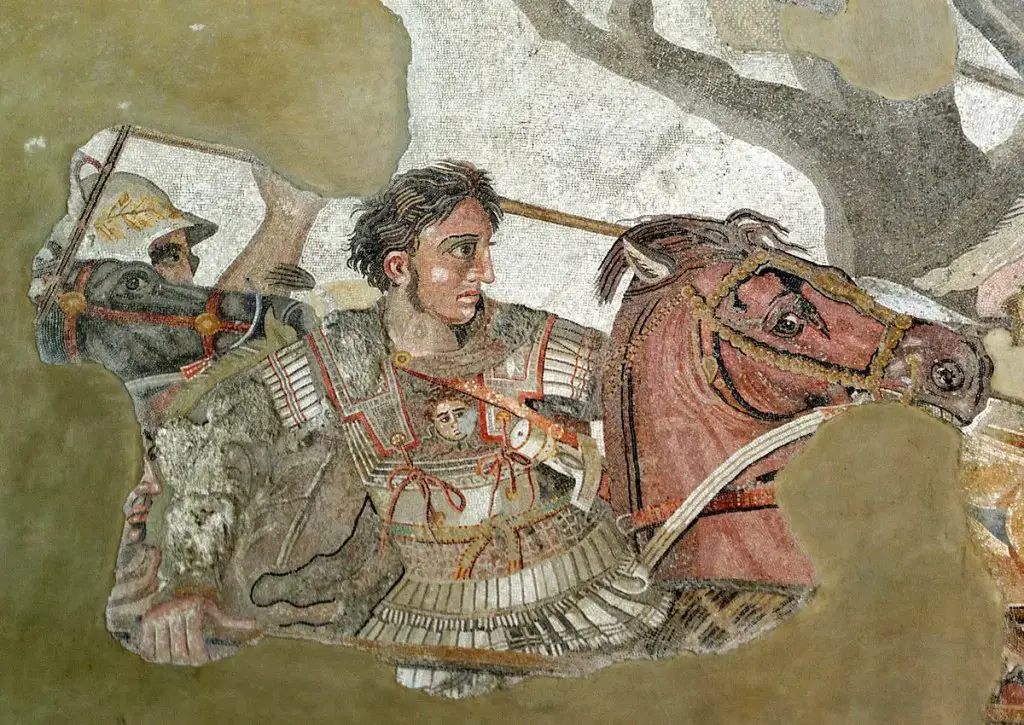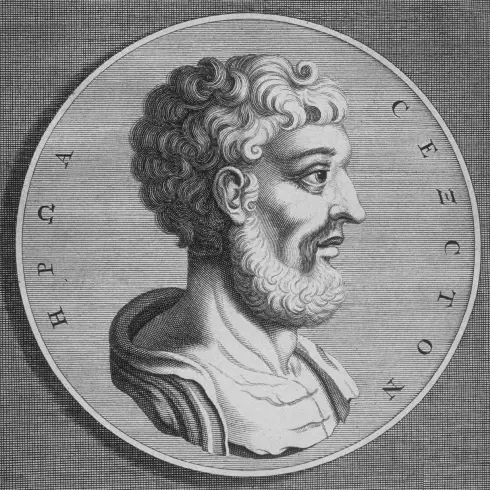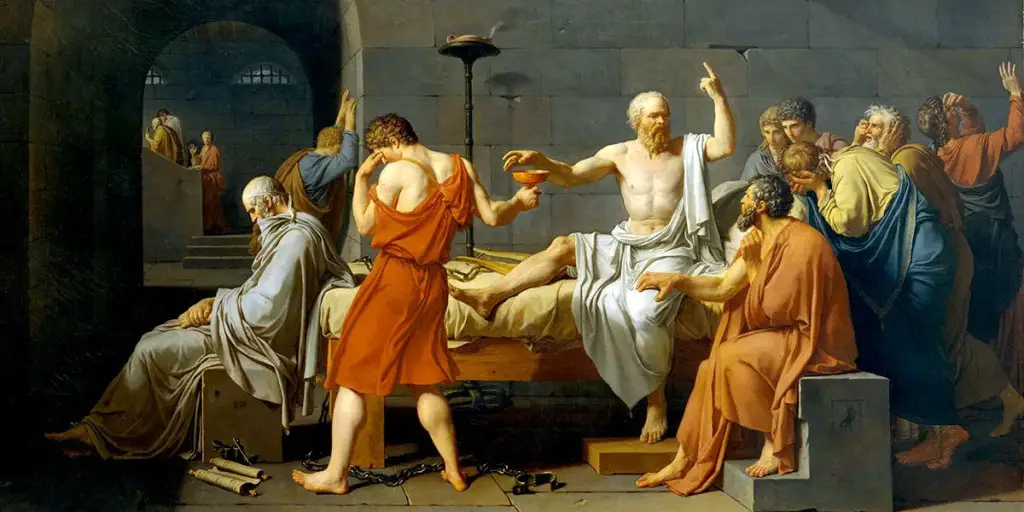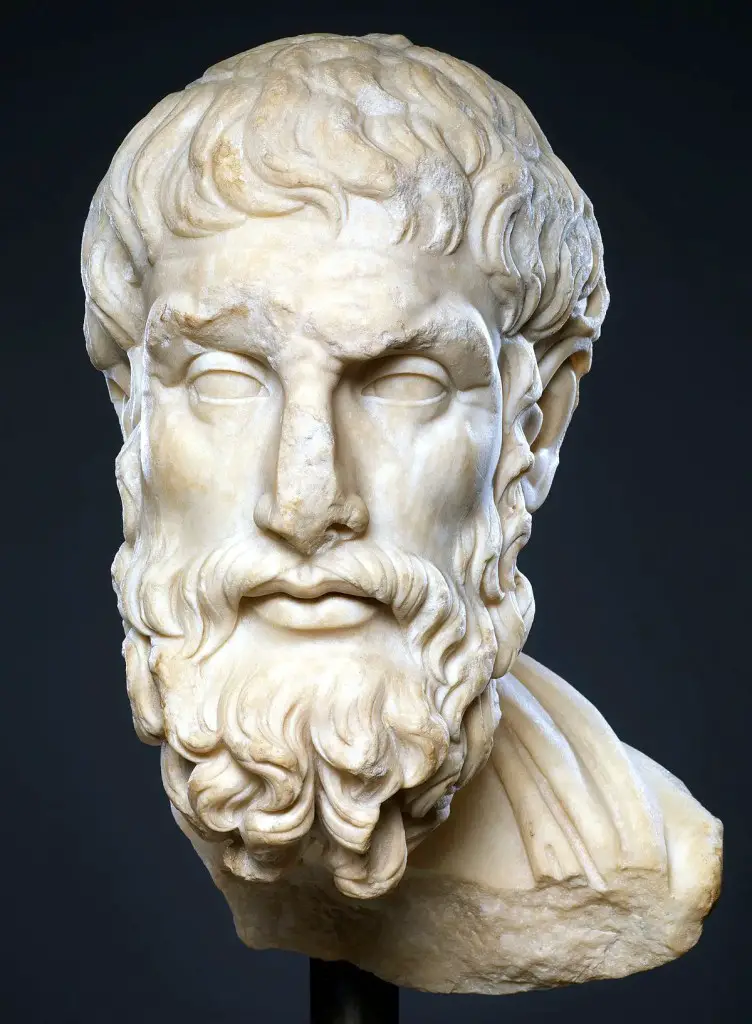Pierre Hadot's essay offers the opportunity to immerse oneself in the philosophical practice widespread above all in the Hellenistic era: an art of life aimed at forming men in harmony with themselves and with what surrounds them.
di Lorenzo Pennacchi
Cover: Raffaello Sanzio, The school of Athens, Vatican rooms, 1509-11
Ultimately, what is the most useful thing to man as a man? Talk about language, or about being and not being? Isn't it rather learning to live a human life?
[1]
With these words the French philosopher Pierre Hadot (1922-2010) defines the meaning of philosophical practice in antiquity. In his essay, composed of various contributions, Hadot refers to philosophy as an act of conversion, anart of life (téchne tou bíou) aimed not only at learning but also at the conscious transformation of individuals in relation to the surrounding world. A love (philo) for wisdom (sophia) fully embodied for the first time by Socrates, inherited from Plato and Aristotle, and then sought after by the Hellenistic schools: from the Academy to the Lyceum, from the Stoic Stoa to the Epicurean Garden, from the skeptics to the so-called minor Socratic movements (cynics and Cyrenaics).
Hadot repeatedly points out the difference proposed by the Stoics between the discourse on philosophy , philosophy itself. The first is characterized by the division into three parts - logic, physics and ethics - preparatory to learning. Epicurus and his followers are of the same opinion, and progressively the idea spread also among the Platonists and Aristotelians. In the second century a. C., within his Handbook of Platonic Doctrines, Alcinoo distinguishes philosophical theory in three fields [2] and shortly after Alexander of Aphrodisias, the commentator par excellence of Aristotle, interprets the theories of the master in a systematic way, coordinating the various treatises among them to answer the new questions raised by the Hellenistic period [3]. Beyond the discourse that characterizes it, however, philosophy itself has one wider scope:
Philosophy itself, that is, the philosophical way of life, is no longer a theory divided into parts, but a single act consisting of to live logic, physics and ethics. Then we no longer do the theory of logic, that is, of well-speaking and well-thinking, but we think and speak well, we no longer make the theory of the physical world, but we contemplate the cosmos, we no longer make the theory of moral action, but it is done in an upright and just way.
[4]

For some time historians have insisted on the radical break in Hellenistic philosophy with respect to the previous period. In fact, as the professor recalls Kempe Algra, the death of Alexander the Great (323 BC) would have ushered in an era of growing anxiety and individualism in which: "Following the end of the traditional structure of the Greek city-state, people would have felt alienated and frightened, and consequently they would have taken refuge in philosophies that no longer had man as a political entity at the center, but the individual and individual salvation " [5].
However, Algra continues, this is an exaggerated characterization of the impact of the change that occurred between the fourth and third centuries. Similarly Hadot insists on continuity between the two periods and on the points of contact between the different Hellenistic currents, for which the philosophical life is understood as a continuous path towards the wisdom that is practiced in a group. For this reason each school develops a fundamental interior attitude, a certain way of speaking and above all spiritual exercises:
Exercises of reason that will be analogous for the soul to the training of the athlete or to the treatment of a medical therapy.
[6]

The term spiritual it may leave the contemporary reader perplexed, but the possible alternatives - psychic, moral, intellectual - would not give a good idea. As Hadot explains, these exercises "correspond to a transformation of the vision of the world and a metamorphosis of the personality" [7]. They score a double movement: within the individual, involving the psychic sphere in its entirety, and towards the outside, relating the individual to the totality of the universe. Scholars have not always grasped both movements. In one of the last essays of the volume, Hadot responds to his friend and colleague Michel Foucault, who defined the exercises practiced by the Stoics and Platonists as self practices aimed at converging towards the individual and freeing him from exteriority. In reverse internalization marks the overcoming of oneself:
I think that this movement of internalization is inextricably linked to another movement, thanks to which we rise to a higher spiritual level, in which we find a different type of externalization, another relationship with externality, a new way of being. to the world, which consists in becoming aware of oneself as part of Nature, as a particle of universal Reason.
[8]
This thesis is absolutely confirmed in reference to theoikeiosis, the theory underlying Stoic ethics. Literally appropriation, this doctrine "combines two central traits of Stoic thought: the providential care for man, and the affinity between human reason and the divine reason that governs the cosmos" [9]. In fact, human life is characterized by this providentially ordered process of progressive appropriation (of oneself, of family, of friends, of the community, of virtue [10]) which culminates in the ideal and paradoxical condition of wise, the final stage of the path in which the conflict between freedom and necessity is canceled and everything is indifferent to the achievement of happiness. In the words of Chrysippus:
It is also right to call [...] the wise the only man sweeper who knows neither subjection nor subjection to passion; and then again invincible, because, even if the body imprisons him, those chains can do nothing on his soul.
[11]

Generally speaking, the spiritual exercises consist of two complementary practices. The first is the self control, which is articulated in a different way according to the schools: the search for virtue for the Platonists and Aristotelians, the radical vigilance for the Stoics, the rejection of socially recognized norms for the cynics, the suspension of judgment (epochè) for the skeptics, the renunciation of superfluous desires for the Epicureans. After all, as Algra observes, contrary to a too widespread view, "Epicurean ethics is not a recipe for debauchery and continuous revelry" [12]. Compared to the dissolute Cyrenaics, Epicurus and his followers know how to enjoy the small daily pleasures from the point of view of a qualitative increase in pleasure, acquired through the absence of pain in the body and disturbance in the soul, as we read in theEpistle to Meneceus:
Every pleasure is therefore a good, because it has a nature that is familiar to us; but not all pleasures have to be chosen. Thus, all pain is bad, but not all pain is such that it must be escaped. It is then appropriate to evaluate all this by means of a comparative measurement and observation of advantages and disadvantages; because sometimes we treat good as evil and, conversely, evil as good.
[13]
The second practice is the meditation which here, unlike the oriental ones, is characterized as a "purely rational or imaginative or intuitive" exercise [14]. Even the meditations take on different connotations depending on the case: tension towards the Forms for Plato, observation of physical reality in order to orient one's own conduct for the Stoics and the Epicureans, pure contemplation for Aristotle. In the'Nicomachean Ethics the Stagirita considers thecontemplative activity the characteristic of the human being, alongside the virtuous life within the polis. The highest good can only be achieved in a political community organized in such a way as to ensure the full pursuit of philosophical practice:
What is appropriate to each by nature is for him the most important and most pleasant thing, and therefore for man is life according to the intellect, since this is, principally, man. And this life will consequently be the happiest.
[15]

Self-care and meditation are therefore the two spiritual exercises practiced constantly during the Hellenistic period, with the relative differences depending on the school to which they belong. After all, "philosophizing, in that era, is equivalent to choosing a school, converting to his way of life and accepting his dogmas" [16]. In any case, the philosophical life in antiquity is active and some realities are more dynamic than others. Over time Aristotelianism and Epicureanism did not change in substance, continuing to spread the theories of their founders, while Stoicism and above all the Platonic Academy underwent numerous changes. Suffice it to say that at the death of Plato (347 BC) the new schoolgirl Speusippus, grandson of the master, rejects the existence of Forms, considering only mathematical numbers as authentic substances and objects of knowledge.
Thirty years later Controversy he shifts the attention to the ethical aspects of Platonism, developing a rigorist doctrine and becoming the teacher of Zeno di Cizio, future founder of the Stoà. Subsequently, in the second half of the third century, with Arcesilaus e Carneades the Academy turns to skepticism. The academic skeptics, known to contemporaries as "those who suspend judgment" (ephektikoi), are distinguished from Neo-Pyrrons skeptics (skeptikoi [17]) for the attitude towards everyday life. Both movements support the need forepochè: suspending judgment is the only rational action possible regarding any theoretical question. Yet, while academics accept a plausibility criterion for dealing with everyday problems, neo-Pyrrons categorically reject it, considering the constant application ofepochè the way to reach the tranquility of the soul (ataraxia), as he will argue Sextus Empiricus in the second century. d. C .:
Skepticism is the ability to propose options between things that appear and are thought of in any way, a capacity by which, thanks to the equivalence of opposites of objects and exhibits, we first arrive at the suspension of judgment and then at tranquility.
[18]

The spiritual exercises, while being acts of reason, are aimed at practice. Among the various possible subdivisions, Hadot defines their significance by identifying four directions of application. First of all, self-control and meditation they teach how to live. The philosophical life is presented as a path capable of improving those who undertake it. In this sense it asserts itself as one conversion: "Philosophy then appears - in its original aspect - no longer as a theoretical construction, but as a method intended to form a new way of living and seeing the world, as an effort to transform man" [19]. Each school develops its own techniques to undertake the journey. In his studies Hadot focuses above all onattention to the present moment implemented with rigor by the Stoics. An exercise that frees from the passions generated by the past and the future, facilitates vigilance and prepares the individual to understand cosmic consciousness [20]. The philosopher emperor Marco Aurelio (II century AD) will frequently implement and remember this warning in his followers Conversations with himself (Tà eis heatón): "Do not be disturbed by the global representation of your entire life" [21]. Hadot comments:
Just as it is an illusion to imagine that a song is something other than a succession of notes, that the dance is not a series of successive figures, so it is a fatal mistake to be disturbed by the global representation of one's whole life, by the accumulation of all the difficulties and all the trials that await us. Like any continuum, our life is finally infinitely divisible.
[22]
Secondly, the philosophical life, as practiced collectively, is based on the dialogue, as stated from the Socratic tradition onwards. Platonic dialogues are not simple conversations characterized by exchanges of opinions, but represent "the movement of a soul which, when she thinks, asks herself questions and gives answers" [23]. With his tireless striving for knowledge, which makes him not so much a sage (Sophos) as much as a lover of wisdom (philosophos), Socrates involves people in close dialectical exchanges tended each time to define the essence of things, but not always able to do so. In asking what it is (Do you feel?) virtue, courage or justice, leads one's interlocutors to worry about their conscience. This is how dialogic practice wills train rather than inform:
Socratic dialogue therefore appears as a spiritual exercise practiced in common that invites to inner spiritual exercise, that is, to the examination of conscience, to attention to oneself, in short, to the famous: "Know thyself".
[24]

Thirdly, the spiritual exercises accompany the philosopher throughout his life, up to the death. Also in this case the exemplary end of Socrates, who refuses to escape from prison despite the unjust sentence received, is the model to follow: "he preferred to die, rather than give up the demands of his conscience" [25]. Plato, deeply marked by the tragic story of the master, faces death by reversing its perspective through the liberation from individual passions and the constrictions of the body. It is a spiritual exercise, "a conversion that takes place with the totality of the soul" [26]. The Stoics relate to it from one cosmic perspective, drawing from the observation of nature the consequences for practical life, which culminate in the absolute indifference of the wise to all earthly things, even the most extreme.
Moreover, for Stoicism, physics - understood through logic - is the foundation of ethics within the philosophical discourse: dimensions which, as we have seen, interpenetrate up to vanish in philosophy itself. The Epicureans are of the same opinion. Their conception of the natural world, equally materialistic but not at all providential, has profound repercussions on the moral sphere, allowing them to escape the two great primitive fears. The first is that of the gods who, totally indifferent to earthly reality, do not concern themselves with human affairs. The second relates to death, a false concern for those who know that the soul, being corporeal, will disperse with the dissolution of the body: "Death is nothing for us, because what is dissolved has no sensations, and what is it has no sensations it's nothing for us " [27].
Finally, philosophical practice, precisely as an all-encompassing teaching of life, allows one to approach texts from one renewed perspective, proactive and authentic:
We spend our life "reading", but we no longer know how to read, that is to say, stop, free ourselves from our worries, return to ourselves, leave aside our searches for subtlety and originality, meditate calmly, ruminate, let the lyrics speak to us. It is a spiritual exercise, one of the most difficult.
[28]

In this contribution the scope of ancient philosophy has been presented, especially during the Hellenistic period, through references to the original texts, to Hadot's essay and to other works by international scholars. Themes were highlighted, paths outlined and questions raised. However it is - and it could not be otherwise - one partial representation of philosophical practice in antiquity: a heterogeneous and very vast phenomenon that requires comparative analysis to be understood in its entirety. It should also be borne in mind that following the end of Hellenism, with the fall of the last empire of Alexander's diadochi (Egypt in 30 BC), philosophy continues its path first in the Imperial Rome and then throughout the late ancient world in different forms. The slave Epictetus joins the emperor Marcus Aurelius, the pagan Neoplatonists (such as Porphyry and Iamblichus) are opposed by the first Christians (Justin and Clement of Alexandria).
Thus the spiritual exercises change progressively and are incarnated in monasticism [29]. With the end of the ancient world in the West, philosophy is eclipsed for centuries, returning only in the late Middle Ages, thanks to Arab mediation, as the handmaid of theology. In modern times, with rare exceptions (including B. Spinoza, JJ Rousseau and F. Nietzsche), philosophical thought is presented as a system composed of a series of doctrines no longer to be lived, but to be studied within a ever smaller circle of specialists. Yet after two millennia, in a sick and in some ways degenerate society, the philosophical practices of antiquity can continue to speak to contemporary men. As Hadot argues, philosophy, while deprived of its community dimension, can be much more than a pleasant luxury, helping man in the search for himself and for harmony with the surrounding world:
In an even more precise way, I think that modern man can practice the philosophical exercises of antiquity while separating them from the philosophical or mythical discourse that accompanied them. [...] For example, Stoics and Epicureans invited their disciples, for entirely different reasons, to focus their attention on the present moment by freeing themselves from the preoccupation with the future and the burden of the past. But whoever practices this exercise concretely sees the universe with new eyes, as if he were seeing it for the first time, he discovers, in the enjoyment of the pure present, the mystery and splendor of existence; then, as Nietzsche said, we say yes "not only to ourselves, but to the whole of existence".
[30]
Note:
[1] Pierre Hadot, Is philosophy a luxury ?, in Spiritual exercises and ancient philosophy, Little Einaudi Library, Turin 2005, p. 195.
[2] Which he calls theoretical, practical and dialectic. However, Plato's work does not easily lend itself to this operation. See: Dominic J. O'Meara, Platonism, Pythagoreanism, Aristotelianism, in Lorenzo Perilli and Daniela P. Taormina (edited by), Ancient philosophy. Historical and textual itinerary, UTET, Novara 2012, p. 453.
[3] Cf. Ibid., P. 463.
[4] Hadot, Philosophy as a way of life, in Spiritual exercises, p. 158.
[5] Keimpe Algra, Hellenistic philosophy, in Perilli and Taormina, Ancient philosophy, p. 310.
[6] Hadot, The history of Hellenistic and Roman thought, in Spiritual exercises, pp. 14-15.
[7] Hadot, Spiritual exercises, in Spiritual exercises, p. 30.
[8] Hadot, Reflections on the notion of self-culture, in Spiritual exercises, p. 175.
[9] Algra, Hellenistic philosophy, p. 357.
[10] Stoic virtue is composed of the four Socratic-Platonic virtues: practical wisdom (phronesis), temperance (sophrosyne), the bravery (andreia) and justice (dikaiosyne). They must be understood in a complementary way, since one cannot be possessed without the others.
[11] Chrysippus, Stoicorum Veterum Fragmenta III 591, cit. in Roberto Root, Stoicism, La Scuola Publishing, Brescia 2012, p. 156.
[12] Algra, Hellenistic philosophy, p. 331.
[13] Epicurus, Epistle to Meneceus 129-130, cit. in Ibid, p. 330.
[14] Hadot, The history of Hellenistic and Roman thought, p. 15.
[15] Aristotle, Nicomachean Ethics X (1178 a5-10), Laterza Publishers, Bari 2018, p. 433.
[16] Hadot, The history of Hellenistic and Roman thought, p. 16.
[17] Pirrone, who lived in the 1th century BC. C., affirms that in life there are three important questions: 2) how things are by nature; 3) what position should be taken towards them; XNUMX) what will follow from that position. In all cases, the attitude should be characterized by the absence of opinion and speech, capable of leading toataraxia. See: Algra, Hellenistic philosophy, p. 370.
[18] Sesto Empirico, Pirroniani sketches I 8, cit. in Algra, Fr. 372.
[19] Hadot, Spiritual exercises, p. 66.
[20] Cf. Ibid., P. 35.
[21] Marcus Aurelius, Conversations with himself VIII, 36, cit. inHadot, Physics as a spiritual exercise, in Spiritual exercises, p. 125.
[22] Hadot, Physics as a spiritual exercise, p. 125.
[23] Monique Dixsaut, Plato, in Perilli and Taormina, Ancient philosophy, p. 205.
[24] Hadot, Spiritual exercises, pp. 44-45.
[25] Ibid, p. 50.
[26] Ibid, p. 52.
[27] Epicurus, Ratae Sententiae 2, cit. in Algra, Fr. 329.
[28] Hadot, Spiritual exercises, p. 68.
[29] See: Hadot, Ancient Spiritual Exercises and "Christian Philosophy"in Spiritual exercises, pp. 72-73.
[30] Hadot, Reflections on the notion of self-culture, P. 176.

A comment on "Pierre Hadot and the spiritual exercises in antiquity "